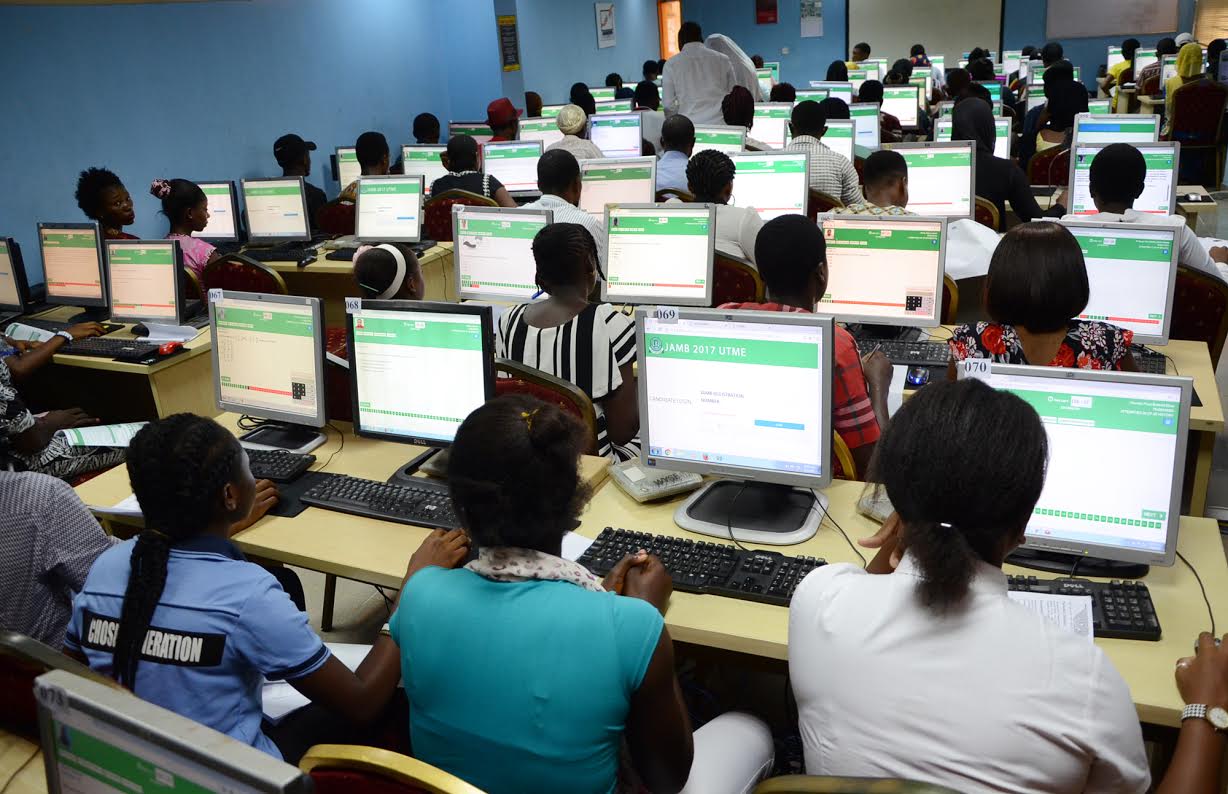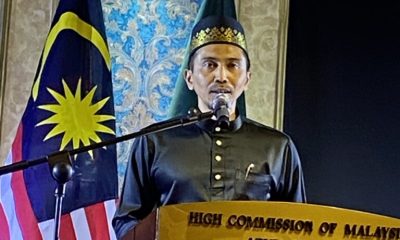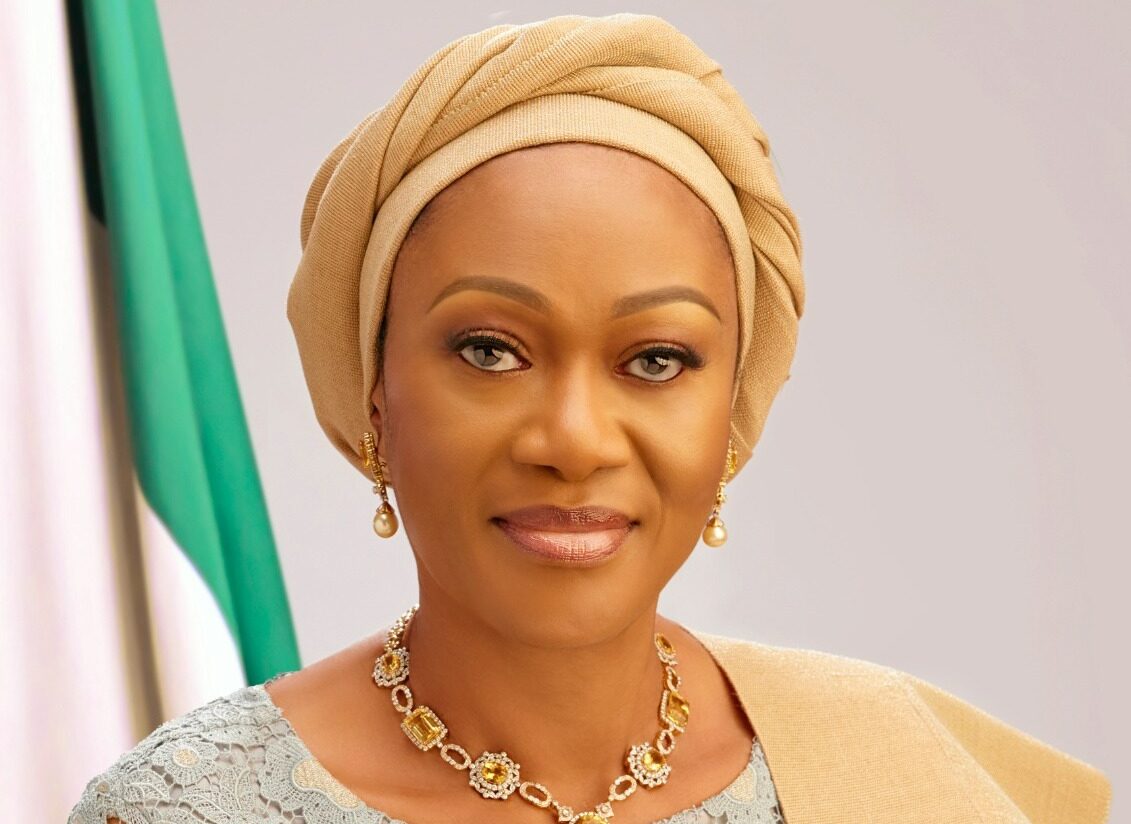Education
Cut-off mark for university admission is now 140, says JAMB

The Joint Admissions and Matriculation Board (JAMB) and heads of tertiary education institutions and other stakeholders in the education sector in the country have announced the minimum cut-off mark for admissions in the 2022/2023 academic session.
The stakeholders announced 140 as the minimum cut-off mark for admission into Nigerian universities, polytechnics – 100 and colleges of education – 100 were made known at a Policy Meeting on Admissions presided by the Minister of Education, Adamu Adamu, in Abuja.
JAMB’s registrar, Professor Ishaq Oloyede, who announced the cut-off after thorough debates and votes by vice-chancellors of universities, rectors of polytechnics, and provosts of colleges of education, said the implication is that every institution has the right to fix its own cut-off mark even up to 220 but no one would be allowed to go less than the agreed minimum marks of 100 for colleges of education, 100 for polytechnics and 140 for universities.
The JAMB registrar revealed that only 378,639 of the 1,761,338 who wrote the 2022 Unified Tertiary Matriculation Examinations (UTME) scored 200 and above.
While giving further statistics of the 2022 examination, Oloyede noted that 378,639 scored above 200; a total of 520,596 candidates scored 190 and above; 704,991 scored 180 and above; 934,103 scored 170 and above; 1,192, 057 scored 160 and above.
Speaking further, Oloyede noted that the board allowed candidates with awaiting results to register for the 2022 UTME.
“JAMB allowed awaiting results candidates to register and sit for the 2022 UTME. These candidates can’t be considered for admission on awaiting result status. They must present their O’level results on the board’s portal before the commencement of admissions,” Oloyede said.
On his part, the Minister of Education, Adamu Adamu said, urged all institutions to adhere strictly to all admission regulatios prescribed by the regulatory bodies such as the National Universities Commission (NUC), National Board for Technical Education (NBTE) and the National Commission for Colleges of Education (NCCE), “particularly with regards to approved quotas, ratios and other specifications meant for improved quality, accountability and equity.
“During the 2021 Policy Meeting, I advised tertiary institutions to adopt a more flexible posture in the admissions process provided all actions are in compliance with the guidelines. One size fits all is injurious, hence, the statutory stipulations that in the exercise of its functions, JAMB should not obliterate the peculiarities and unique features of each of the Institutions.
According to him, “In 2017, we introduced the Central Admissions Processing System (CAPS) to eradicate the primeval activities around admission procedures towards nuzzling transparencies and accountabilities on admissions. It was on this note that it was mandated that all admissions to tertiary institutions in Nigeria must be carried out on the CAPS.
“This implies that all applications for regular and non-regular admissions to tertiary institutions must be routed through the Joint Admissions and Matriculation Board in conformity with its enabling law. I am aware that JAMB issues specific Advisories to guide different aspects of the process. I therefore urge every Institution to comply with those advisories in the interest of the sector.
“By the last policy meeting, I had approved that all illegitimate admissions from 2017 to 2020 be condoned provided such candidates met the minimum entry qualifications in their various courses of study.
“I am aware that the process led the affected institutions to declare about one million illegitimate admissions for the periods.
“As soon as the process is completed, necessary measures would be put in place to track and sanction all culpable Heads of Institutions irrespective of whether they are or not still in office. I have directed a close watch on the 2021 and 2022 exercises with a view to identifying any violator for stricter punishment. I must reiterate my stance that no violator would go unpunished even after he or she must have completed the tenure of office.”
Education
Nafisa Spoke, the World Listened, And Nigeria Shined

Nafisa Spoke, the World Listened, And Nigeria Shined
By Matthew Eloyi
When I first read about 17-year-old Nafisa Abdullah Aminu emerging as the World Best in English Language Skills at the 2025 TeenEagle Global Finals in London, I paused, read it again, and then sat quietly, moved in a way I haven’t been in a long time. In that moment, I wasn’t just a Nigerian reading a piece of good news; I was a Nigerian filled with pride, hope, and a renewed belief in our greatness.
Let me be honest: in a country weighed down by insecurity, economic hardship, and a struggling educational system, it’s easy, too easy, to become cynical. But Nafisa’s victory pierced through that fog of despair and reminded me why I have always believed in this country, despite everything.
Think about it: this young girl, from Yobe State, a region often reduced to a footnote in conversations about insecurity and poverty, stood on a global stage in London, not just to participate, but to conquer. She didn’t just win a medal. She defeated over 20,000 participants from 69 countries, including from places where English is a first language.
Let that sink in.
As someone who has spent years writing, editing, and advocating for better education in Nigeria, I understand just how powerful and rare this kind of achievement is. I see myself in Nafisa, in her curiosity, her hunger for knowledge, and her refusal to be boxed in by circumstance. Her story makes me emotional, not just because it’s inspiring, but because it reminds me of the many gifted Nigerian children who never get the chance to shine. Nafisa represents them, and she represents what’s possible when we choose to invest in our youth.
I am also deeply moved by the humility and grace of the Aminu family, who publicly acknowledged the role of Governor Mai Mala Buni’s educational reforms and the impact of Nigerian Tulip International College in preparing their daughter for the global stage. This wasn’t a solo journey; it was a collective effort rooted in family values, good governance, and dedicated educators.
“We cannot take all the credit,” they said. And in that simple statement, they reminded me that when leadership, community, and family work together, magic happens.
Nafisa’s win isn’t just a win for Yobe State. It’s not even just a win for Nigeria. It’s a resounding answer to every doubt we’ve ever had about our potential as a nation. Her victory tells every Nigerian child that “you are enough, and the world will hear your voice if you dare to speak it.”
As I write this, I think about the millions of young girls in the North and across Nigeria who will see Nafisa’s face and think, “If she can do it, so can I.” That, right there, is the power of representation.
I join the growing chorus of voices calling for State and National Honours for Nafisa. We must celebrate her not just with headlines, but with action, by investing more in education, giving scholarships, and ensuring that no child with potential is left behind because of geography, gender, or poverty.
To Nafisa, if you ever read this, know that you didn’t just win a competition; you reignited a nation’s pride. You gave us something we desperately needed: a reason to believe again.
And to Nigeria, this is who we are: brilliant, resilient, and unstoppable when given a chance.
Nafisa didn’t just make Yobe proud. She made me proud. She made us proud.
Education
NELFUND Begins Upkeep Payments to Over 3,600 Students After Bank Detail Update

The Nigerian Education Loan Fund (NELFUND) has commenced the disbursement of upkeep payments to students who successfully updated their bank account details from digital wallets to commercial bank accounts.
This was announced in a statement released on Friday in Abuja by the Director of Strategic Communications of the Fund, Mrs. Oseyemi Oluwatuyi.
Oluwatuyi described the development as a significant breakthrough in addressing earlier disbursement delays.
“Over 3,600 students, who previously registered with digital-only banking platforms, have now successfully received their backlog of upkeep payments after updating their details to conventional commercial bank accounts on the NELFUND portal,” she stated.
“We appreciate the patience and understanding of all affected students during this period. Your resilience and cooperation have made this progress possible,” she added.
The NELFUND spokesperson advised students who have yet to update their bank details to raise a support ticket via the official NELFUND portal to request access for the update.
She further urged affected students to report through the IT office of their respective institutions, which would compile and forward all related cases to NELFUND for prompt resolution.
“NELFUND remains committed to ensuring that no eligible student is left behind. This resolution process is part of our broader effort to enhance the efficiency, transparency, and student-centered delivery of our support services,” she said.
Oluwatuyi encouraged students to continue engaging only through official NELFUND channels and to assist their peers who may need help navigating the update process.
She also provided contact options for inquiries, stating that the fund can be reached via email at info@nelf.gov.ng or through its official social media handles: X (formerly Twitter) @nelfund; Instagram @nelfund; and Facebook & LinkedIn: Nigerian Education Loan Fund – NELFUND.
Education
NELFUND Urges Institutions to Upload Student Data for Loan Processing

The Nigerian Education Loan Fund (NELFUND) has issued a directive to all accredited tertiary institutions to verify and upload their students’ data on the newly digitised Student Loan Application System (SLAS).
This was disclosed in a statement released in Abuja on Wednesday by the Director of Strategic Communications at NELFUND, Mrs Oseyemi Oluwatuyi.
According to Oluwatuyi, the SLAS platform has been fully digitised to streamline and accelerate the student loan processing experience for both institutions and applicants.
“With this upgrade, all accredited institutions are now required to request access to SLAS to verify and upload student data related to loan applications,” she said.
She described the move as “a critical step that ensures the timely processing and disbursement of approved student loans.”
Institutions that have not yet been onboarded onto the system, she said, are advised to send an access request to registration@nelf.gov.ng without delay.
“Once granted access, institutions will be able to view a real-time dashboard of their students’ loan applications, verify submitted data, and track the status of each application,” Oluwatuyi explained.
She called on all institutions to take immediate action in the interest of their students, stressing that verification and data upload by institutions are mandatory steps before final approval and disbursement of loans can be completed.
On the students’ side, Oluwatuyi noted that if an application status currently shows “Verified,” it means the application has passed initial checks. However, final approval and disbursement depend on the institutions’ confirmation and data upload.
“Once this process is completed, your status will be updated to ‘Disbursed’ when the payment of your fees has been processed,” she added.
She also encouraged students to reach out to the fund for assistance via email at info@nelf.gov.ng.
Other official communication channels include:
-
X (formerly Twitter): @nelfund
-
Instagram: @nelfund
-
Facebook & LinkedIn: Nigerian Education Loan Fund – NELFUND
-

 Headlines4 years ago
Headlines4 years agoFacebook, Instagram Temporarily Allow Posts on Ukraine War Calling for Violence Against Invading Russians or Putin’s Death
-

 Headlines4 years ago
Headlines4 years agoNigeria, Other West African Countries Facing Worst Food Crisis in 10 Years, Aid Groups Say
-

 Foreign4 years ago
Foreign4 years agoNew York Consulate installs machines for 10-year passport
-

 News1 year ago
News1 year agoZero Trust Architecture in a Remote World: Securing the New Normal
-

 Entertainment3 years ago
Entertainment3 years agoPhyna emerges winner of Big Brother Naija Season 7
-

 Headlines2 years ago
Headlines2 years agoNigeria Customs modernisation project to check extortion of traders
-

 Entertainment2 years ago
Entertainment2 years agoMovie download platform, Netnaija, announces closure
-

 Economy2 years ago
Economy2 years agoWe generated N30.2 bn revenue in three months – Kano NCS Comptroller















